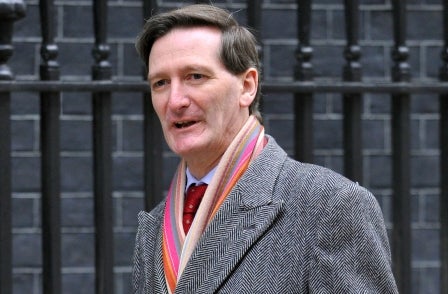
The Government’s top lawyer has told police that they should confirm suspects’ names when they have already been identified by journalists.
Speaking to ITV News last night, Attorney General Dominic Grieve said that “it might be very sensible” for the police to reveal names of suspects when put to them by members of the press.
He said: “Clearly, if the press have got to know who somebody is who's been arrested and are publicising that, then clearly it might be very sensible for the police to confirm that fact.”
He added that “it becomes a bit odd if everybody else knows (the name of a suspect) and it's out in the newspapers but the police are refusing to confirm it in those circumstances”.
When asked whether he was concerned that some forces were not revealing suspects’ names when approached by journalists, Grieve answered: “It’s a balancing exercise and I don’t think one can be prescriptive of what you should do in every case… But under certain circumstances that might be a good reason why the person under arrest should have their name publicised.”
He added that the police should not be “subjected to fishing expeditions with dozens of names being reeled out to them and an obligation to pick one of them”.
Grieve was speaking after the arrest yesterday of another suspect under Operation Yewtree, the child sex abuse investigation launched in the wake of the Jimmy Savile scandal.
A number of celebrity figures were named on Twitter as the suspect but according to a number of reports the suspect was not well known.
Nevertheless, Grieve’s comments are likely to re-ignite the debate over the naming of high-profile suspects before they are charged.
Last month, the College of Policing issued guidelines stating that names should not be revealed except in certain exceptional circumstances.
But Grieve insisted that he was not contradicting the guidelines. He told ITV News: “The guidelines provide for discretion and I'd be very hesitant to lay down prescriptive rules”.
Society of Editors executive director Bob Satchwell said the Attorney General's comments are a "welcome" addition to the debate.
He said: "But the real issue is that the the new police guidelines retain old ‘tell the public as little as possible’ attitudes that should be replaced by a default switch set to recognise that the public has a right to know unless there is an extremely good reason for not telling them.”
Email pged@pressgazette.co.uk to point out mistakes, provide story tips or send in a letter for publication on our "Letters Page" blog
